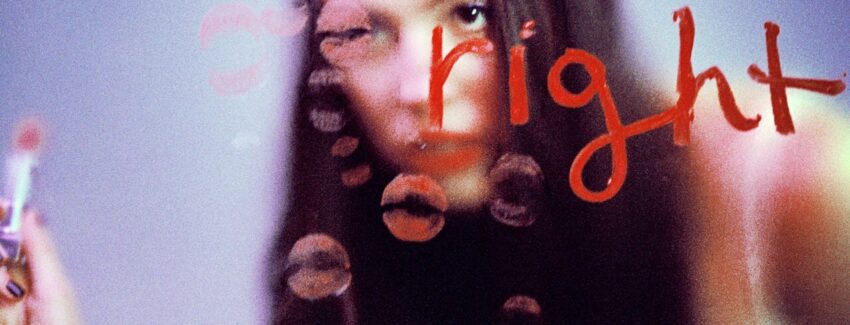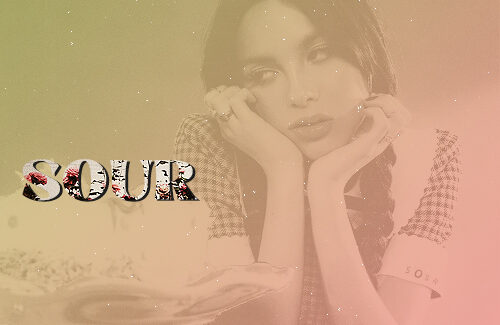At the start of the year, few would have predicted that the most anticipated pop record of 2021 would be by a 18-year-old virtually unknown to the wider mainstream months ago.
Olivia Rodrigo’s ascent has been sharp: ‘drivers license’, the stirring ballad that gained unprecedented viral momentum, was released less than six months ago. Now, we have her debut album, SOUR, which includes three Australian top 10 singles.
Before ‘drivers license’, Rodrigo was known mostly to just the Disney community as Nini in High School Musical: The Musical: The Series. The Disney-star-turned-popstar story isn’t a new one by any stretch, but there’s something refreshing about Rodrigo’s transition. She’s shied away from big-name producers, instead working almost exclusively with Daniel Nigro who, before Rodrigo, operated on the outskirts of mainstream pop working with names like Sky Ferreira and Conan Gray.
She’s also starting out with good-footing in the industry, revealing to The Guardian that she has full control of her masters (a big deal if you’ve been following the Taylor Swift debacle). What’s more, there’s no tidy, Disney image to be upheld on the record. The F-bomb is dropped in the first 40 seconds of the album.
Her debut album does arrive alarmingly early in her career. Billie Eilish, the last record-breaking teen to crash through, took three years to build towards her debut. SOUR was initially meant to be an EP but it was extended to an album as the magnitude of ‘drivers licenses’ success blindsided both Rodrigo and her team. With that in mind, it’s surprising that the record feels completely unforced. This isn’t an album stitched together in a hurry as success came at her fast. It’s a nuanced, raw and inspired project showcasing a newcomer who is too good a songwriter to simply be a fad.
‘Drivers license’ is the sort of song that can both build and sink a career; its success is so large for a debut single that you could spend the rest of your career chasing it. Rodrigo has made it very clear, however, that she has no intention of recreating it. Since the song, she’s followed it up with the jagged, left-centre ‘deja vu’ and then the angsty, punk-infused ‘good 4 u’. It’s difficult to recall a new popstar who has had such a varied initial run. Rodrigo darts through genres like an iPod shuffle, tying it together with her earnest, unfiltered songwriting.
‘Drivers license’ is perhaps the best song on the album, but it doesn’t stand as a giant amongst the other songs. ‘Good 4 u’ is tracking to match its success as a number one single in the US using a totally different sonic blueprint. The heartbreaking emotion that waltzes through her debut single’s bridge is translated into unadulterated rage on ‘good 4 u’, thundering out with rollicking drums. It’s just as effective, albeit on a totally different emotional spectrum.
That said, ‘deja Vu’ and ‘good 4 u’ are anomalies on the album: SOUR is ballad-heavy, with seven of the 11 songs fitting the description. None of them, however, follow ‘drivers license’s sweeping, piano-led style. ‘Favourite crime’ unravels over a gently plucked guitar as does ‘enough for you’ while ‘happier’ gracefully dances by on a bed of strings. The production rarely pushes explicit new boundaries but it rises and falls in all the right places with technical precision.
What makes these ballads better than most is Rodrigo’s ability to give it to us all — the good, the bad and the ugly. There’s no attempt to dull down her extremities even though she questions them throughout. “Stupid, emotional, obsessive little me,” she sings on ‘enough for you’, picking holes in her personality before concluding by song’s end that it’s not her, it’s him: “I don’t think anything could ever be enough for you.”
Relationship woes aren’t her only mode. On the heart-rendering closer ‘hope ur ok’, Rodrigo took inspiration from the narrative-based style of “country and folk singers”, telling the story of old friends she’s lost contact with. “His parents cared more about the Bible, Than being good to their own child,” she sings in a line that’s being perceived as outward support for the LGBTIQ community.
Pop music has a history of painting young female artists as hysterical for displaying the depth and breadth of their emotions. Taylor Swift was long made fun of for perceivably jumping from boyfriend-to-boyfriend, trashing her next “victim” in a fury of emotion on each record. She flipped that script on ‘Blank Space’, creating one of her biggest hits by humorously claiming the narrative with lines like, “I’m a nightmare dressed like a daydream.”
Rodrigo has proudly claimed the overly emotional nature of her music, responding to what she calls “sexist criticism of songwriters.” “I’m a teenage girl, I write about stuff that I feel really intensely — and I feel heartbreak and longing really intensely — and I think that’s authentic and natural,” she told The Guardian.
“I’M A TEENAGE GIRL, I WRITE ABOUT STUFF THAT I FEEL REALLY INTENSELY…”
SOUR is engaging because it is so authentic in its depiction of teenage emotion. Its opener, ‘brutal’, doesn’t shy away from anything, declaring “where’s my fucking teenage dream,” over chopping guitars. She furiously unravels before catching her breath and laughing it off: “Damn, it’s brutal out here.”
That same brand of angst re-emerges on ‘good 4 u’ with Rodrigo letting loose in the chorus. “I’ve lost my mind, I’ve spent the night, crying on the floor in my bathroom,” she sings in one of the most cathartic choruses of the year. It’s been a minute since the days rock-pop ruled the charts (Kelly Clarkson, Avril Lavigne and Katy Perry) but ‘good 4 u’ is so engaging Rodrigo may single-handedly bring the pop-punk genre back to the radio.
From a songwriting perspective, SOUR is rooted in ‘00s pop history. It directly and inadvertently nods to some of the best pop writers of the past decade or so, particularly Taylor Swift and Lorde. It’s hard not to hear Lorde’s intonation in the bridge of ‘drivers license’ or her dark delivery in the little laughs and gasps that fill ‘deja vu’.
Lorde’s sister reportedly reached out to Rodrigo to tell her that Lorde was a fan of ‘drivers license’. Swift has been a little louder in her support for Rodrigo, writing that she was “really proud” of Rodrigo on social media before the pair met in person at this year’s Brit Awards.
Swift’s fingerprints are all over SOUR. She and producer Jack Antonoff are credited on ‘1 step forwards, 3 steps back’ with Rodrigo sampling reputation closer ‘New Year’s Day’, using the gentle keys as the backdrop for one of the album’s rawest moments. The bridge of the song is one of the album’s key moments — which it better be if you’re using a Swift instrumental.
The bridge has been dying in pop music as song lengths have gotten shorter and shorter — but Swift and Lorde have always championed it. We can add Rodrigo to that list now as she delivers bridge after perfect bridge on SOUR: ‘Drivers license’ lifts to a new dimension when she sings “red lights, stop signs,” while ‘deja vu’ takes inspiration from Swift’s explosive ‘Cruel Summer’ bridge with Rodrigo shouting, “I know you get deja vu!”
SOUR sees Rodrigo join her idols as a peer — an exciting new voice that is still learning and developing in front of our eyes. It isn’t a perfect debut, nor does it feel like the peak of Rodrigo’s powers. When she errs more towards Ed Sheeran than Swift on moments like ‘happier’ she loses her charisma, and she doesn’t quite stick the knife in far enough on ‘jealousy jealousy’.
These are small criticisms, however, of a record that otherwise achieves exactly what it set out to do — to establish Rodrigo as an artist who is unafraid to feel it all. SOUR is unapologetic, messy and unhinged. To criticise that would be to criticise being a teenager. Her portrayal of teenage emotion — the extremes and the nuances — is totally thrilling.












